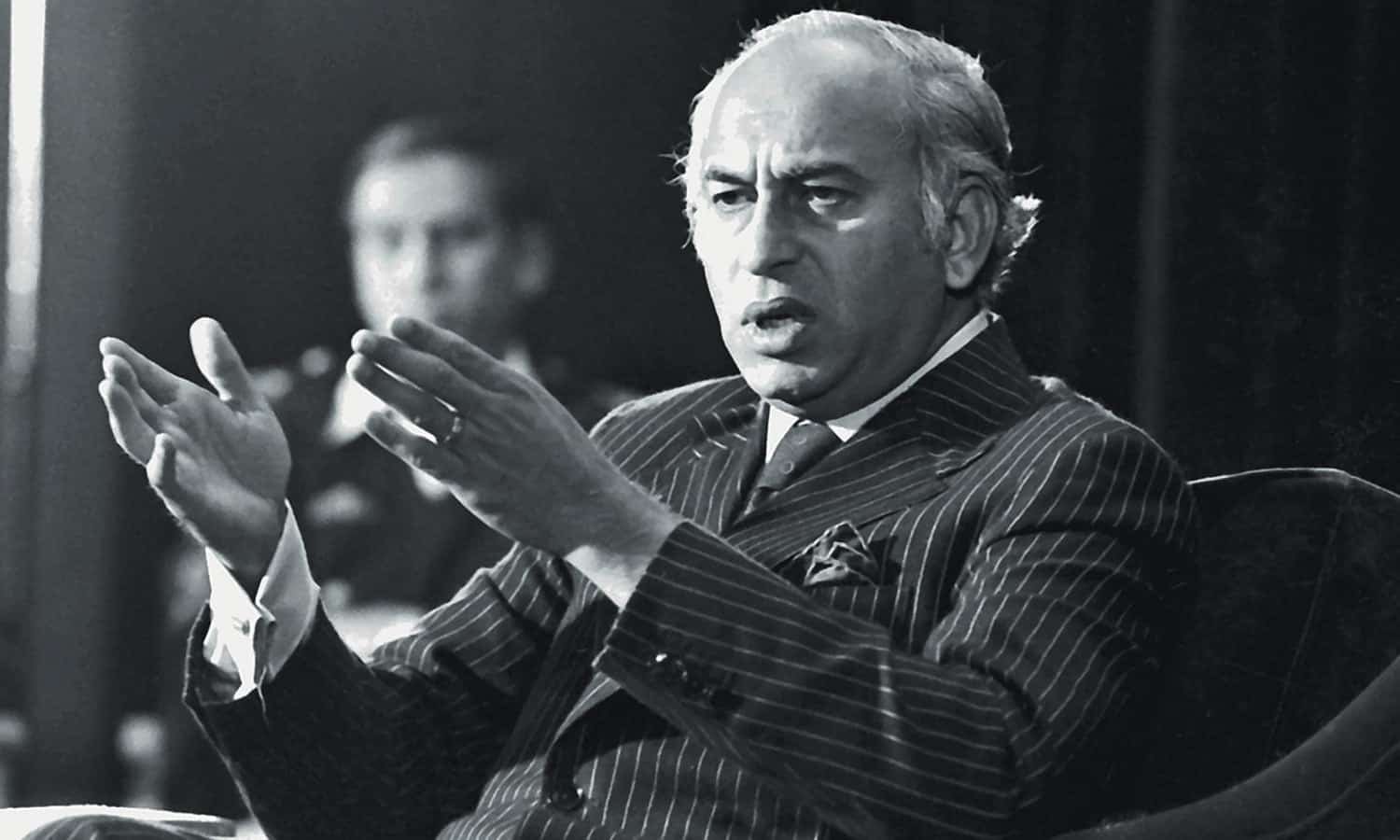Death Anniversary
KARACHI: The Pakistan Peoples Party (PPP) is observing the 46th death anniversary of its founding chairman and former prime minister, Zulfikar Ali Bhutto, who was executed on this day in 1979 following a highly controversial trial.
Bhutto’s death marked a pivotal moment in Pakistan’s history, but his influence on the country’s political landscape continues to endure.
Zulfikar Bhutto was a dynamic and charismatic leader who played a crucial role in shaping the political future of Pakistan. His leadership extended beyond national borders, with his actions and policies leaving a significant mark on the global stage.
Bhutto’s legacy was further reinforced earlier this year when the Supreme Court of Pakistan ruled that his trial had not met the constitutional standards for fairness, acknowledging the political nature of the charges against him.
In recognition of his substantial contributions to Pakistan, the federal government posthumously awarded Bhutto Pakistan’s highest civilian honor, Nishan-e-Pakistan, on March 23. The award was accepted by his daughter, Sanam Bhutto, symbolizing the continued reverence for his political vision.
Born on January 5, 1928, in Larkana, Bhutto received his education in law at the University of California, Berkeley, and later at Oxford University.
He began his political career as the foreign minister in General Ayub Khan’s cabinet in 1963 but later broke away to form the PPP on November 30, 1967. His progressive ideology and advocacy for social justice made the PPP one of Pakistan’s most popular political movements.
Bhutto served as Pakistan’s president from 1971 to 1973, and then as the elected prime minister from 1973 until 1977. During his tenure, he played a central role in drafting Pakistan’s first consensus Constitution, initiating the country’s nuclear program, and fostering unity among Muslim nations against Western imperialism. His vision for Pakistan’s future was both ambitious and transformative.
However, Bhutto’s time in office came to a sudden and tragic end when General Zia-ul-Haq, the chief of the army staff, led a military coup in 1977, overthrowing Bhutto’s government.
After his arrest and a trial that many consider politically motivated, Bhutto was convicted of conspiring to murder a political opponent and sentenced to death. On April 4, 1979, he was executed, a move that has since been viewed as an unjust decision by many, as it silenced one of the country’s most influential leaders.
Despite the tragic end to his life, Bhutto’s political philosophy and leadership continue to resonate strongly in Pakistan. His legacy remains a vital part of the nation’s political fabric, and his party, the PPP, continues to be a dominant force in the country’s politics.
Through his contributions, Bhutto’s influence endures, reminding Pakistan of the enduring power of his vision for a democratic and prosperous future.










